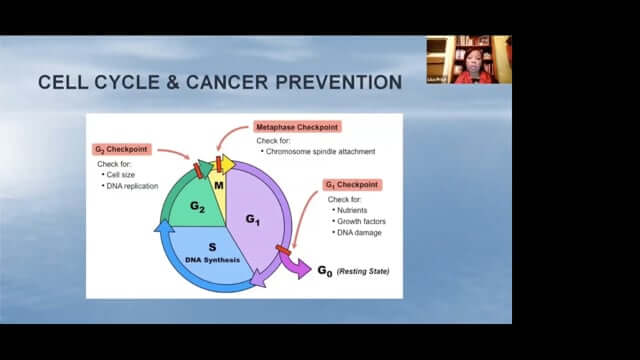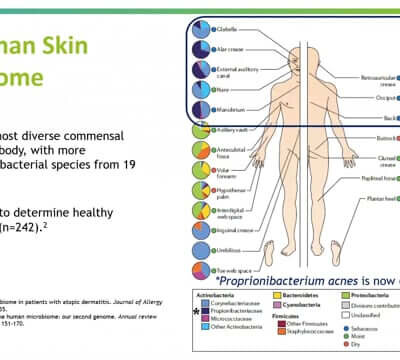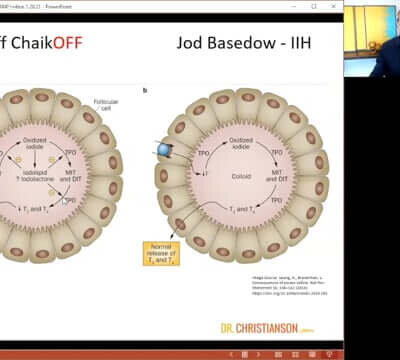Description
The third and final talk in our Oncology mini-series will demonstrate how diet is unequivocally a causative factor in the initial development and recurrence of cancer. The American Cancer Association estimates that 30-35% of cancers are related to diet. Diet is also responsible for morbidity and/or mortality during treatment. It is estimated that 67% of patients are malnourished at diagnosis. Patients are at particularly high risk for developing further malnutrition due to both the disease and the treatment. Malnutrition is associated with severe infections during treatment and poor treatment outcomes, and impairment of immune function, performance status, muscle function, and quality of life. Response to chemotherapy decreases, resulting in increased chemotherapy related toxicity and complications, and survival times are shortened. Malnutrition is also associated with significant healthcare related costs. Poor nutritional status can cause disturbances in metabolism and cellular repair processes, and it affects immune function due to co-factor deficiencies. It also impacts genetic mutations. It is therefore imperative for clinicians to have an understanding of mechanism of action and pharmacokinetics of cancer treatments in order to understand the predicted impact on nutrition and nutrient demand patients will experience from each treatment. The best diets for cancer patients are personalized. Considerations must include co-morbidities and medications, dietary status prior to diagnosis, specific cancer treatment mechanism of action, and individual genetic polymorphisms. Of particular interest in creating personalized diets are those mutations associated with metabolism and cell-directed immunity. Their elucidation and analysis are vital to the creation of precise and effective dietary and nutrition protocols. Cancer outcome is in large part dependent on an optimally functioning immune system during and after treatment. Unfortunately, most treatments damage these very cells. By looking at mutations involving cell-directed immunity, apoptosis, and HLA signaling, we can get a better idea of how to support the body’s ability to fight cancer through nutrition. OPUS23 software enables analysis of over 3,400 single nucleotide polymorphisms (SNPs). These analyses give us insight into personal immune function and also link to data regarding the epigenetic impact of nutrition on each of these genes.
Speaker Bio: Dr. Lisa A. Price, a 1998 graduate of Bastyr University, is a licensed Naturopathic Physician with expertise in complementary cancer care, and culinary nutrition during cancer treatment through survivorship. She has worked with oncologists and patients for over a decade in such institutions as Swedish Cancer Center, True Family Center, Rainer Specialty Clinic, and Multicare Regional Cancer Center. A National Institute of Health (NIH) research fellow, she is also an author of three books published by Demos Health Inc., NYC [Cooking through Cancer Treatment to Recovery (2015); Breast Cancer: Thriving through Treatment to Recovery (2109); Prostate Cancer: Thriving through Cancer Treatment to Recovery (2019)], a radio host and producer, a lecturer, and an adjunct faculty member since 2003 at Bastyr University. She studied microbial biochemistry as an undergraduate and as a Master of Science student in New York. Dr. Price is a certified expert in the software OPUS23, a nutrigenomic analysis system.
*Certified by the WANP for 1 Category 1 continuing education credit for Washington NDs*
(Originally presented on October 12, 2020)




